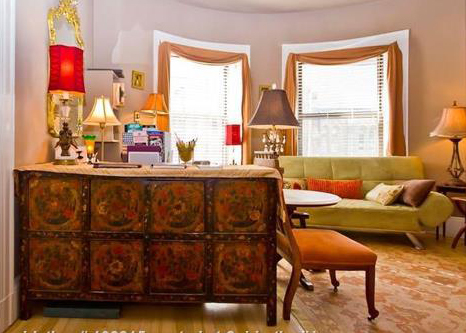We recently heard from a homeowner who lists her newly refurbished attic room with ensuite home share in London on SabbaticalHomes.com. The comfortable, sunny space is perfect to a researcher or a PhD student. She has always been excited to open her home to others to have a more authentic experience abroad, but unfortunately has recently experienced tenants cancelling at the last moment, leaving her empty-handed and unable to book anyone else.
She describes the experience, “[I’m] very grateful to Sabbatical Homes for providing the possibility of finding such considerate and interesting people to rent my room. Aside from those, there were two people who suddenly “dropped out” on me, but, funnily enough, they were the two who weren’t affiliated to any academic institution. I’ve now decided to ask for a deposit to ensure applicants are serious and compensate me a little in the event of getting “left in the lurch”. The ones who actually came couldn’t have been nicer!”
As a home lister, it’s important to ensure your occupancy. Here’s how you can handle this is in a friendly, yet professional manner that is fair to old and new renters alike:
Should I ask for a security deposit to secure tenancy?
Think about whether this could be a best practice for you and your home rental. If a renter puts down a security deposit, it is a sign that he or she is serious. If a renter cancels at the last minute, you are protected, at least in part. On the other hand, returning renters might take exception. Be sure to clearly communicate any changes.
Create a document to indicate clearly what the security deposit is for.
For everyone’s protection, including your own, everything you do should be in writing. That being said, you cannot just write a letter off the top of your head; check your state or local laws regarding deposits on rentals. Iron out the details before your home rental or home exchange begins. We’ve created free home exchange, home rental, and vehicle use sample agreement guidelines specifically to help you sort out pertinent information– from dates of accommodation and fees (inducing deposits), to mail forwarding and vehicle usage. It’s a great starting point.
How much should the security deposit be and what about a cancellation/refund policy?
Again, these must be within the scope of your local laws. Every area will have different rules and laws regarding acceptable limitations on deposits and cancellation policies. If you live in the United States, you can use this handy site to find the latest official rules and regulations in your state. Be sure to get in touch with your local housing board for the latest regulation information. Just remember, while you may choose to do this in order to protect yourself, it’s best to be fair and reasonable.
Before you begin to think this is too much work, just know that nearly all state and local laws are available online. Most are searchable, which makes the job much easier. If you have a computer, tablet, or smartphone, you won’t even have to leave home! It all comes down to protecting yourself and fostering positive relationships.
We want to know what you think! Connect with us on Facebook, Twitter, or Google +.


